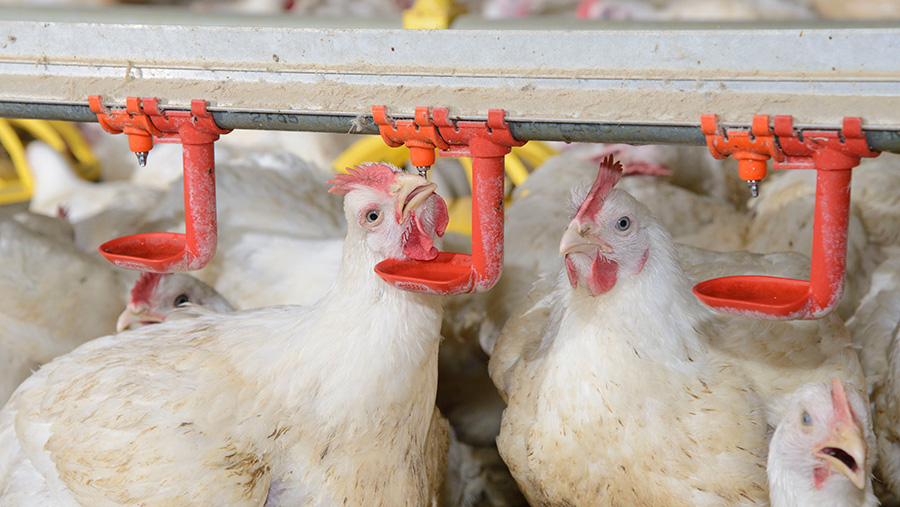Antibiotic-resistant E coli has increased in supermarket chicken, study shows
 © FLPA/John Eveson/REX/Shutterstock
© FLPA/John Eveson/REX/Shutterstock A quarter of British chicken from supermarkets has been found to contain antibiotic-resistant E coli, a study has found.
Researchers from Cambridge University tested poultry for resistant E coli from seven major supermarkets – Tesco, Asda, Morrisons, Sainsbury’s, Aldi, the Co-op and Waitrose.
They found 24% of pork and poultrymeat samples tested positive for ESBL E coli, a type resistant to a family of antibiotics known as “cephalosporins”, which are classed as “critically important” for treating people.
See also: Task force to cut antibiotics use in UK livestock
Tests carried out in 2015 by the same research team found 6% of poultry samples and 4% of pork samples were contaminated with ESBL E coli.
Researchers said the latest figures suggested a “substantial increase” of ESBL E coli on poultrymeat.
E coli has been linked to more than 5,500 deaths in England last year, according to Public Health England.
It is the most common cause of urinary tract infections, dangerous blood poisoning, and can even cause meningitis.
The report, commissioned by the Alliance to Save our Antibiotics, concluded that the “overuse of antibiotics on British farms is undermining the treatment of dangerous E coli infections in humans”.
Using fewer antibiotics will put less pressure on bacteria in the poultry production chain to select for resistance, and we will see that resistance drop Richard Griffith, British Poultry Council
The British Poultry Council (BPC) said it recognised there was a problem with the overuse of antibiotics in the UK poultry farming industry.
As such, the sector had reduced its use of antibiotics by 44% since 2012.
Richard Griffiths, BPC policy director, said: “Our priority remains the health of our birds and the responsible therapeutic use of antibiotics, but we also need to explore further into the science of the issue.
“Using fewer antibiotics will put less pressure on bacteria in the poultry production chain to select for resistance, and we will see that resistance drop.”
Industry body, the Responsible Use of Medicines in Agriculture Alliance (Ruma) said it “fully recognised” concerns about growing resistance to antibiotics.
But it said antibiotic resistance in humans “remains largely attributed to human medical use”.
Ruma cited one recent study, which confirmed farm animal use could be responsible for as few as one in every 370 clinical cases.
‘Good kitchen hygiene vital’
Ruma chairman Gwyn Jones said: “Good kitchen hygiene, washing hands after handling raw meat and thorough cooking of meat will almost completely prevent the transmission of antimicrobial resistance from meat to man.
“Despite this, the farming industry must also play its part to control spread of resistance.
“Sales into farming of fluoroquinolones and third- and fourth-generation cephalosporins, which are [critically important antibiotics], are already very low in the UK, representing just 0.9% of the total.”
But Peter Melchett, policy director at the Soil Association, said: “These results show how vital it is to encourage farming systems that keep healthy animals without abusing medicines that are crucial to human health.
“Organic farmers have been doing this successfully for years.
“Supermarkets must act to protect public health and support farmers to change their farming systems.”
